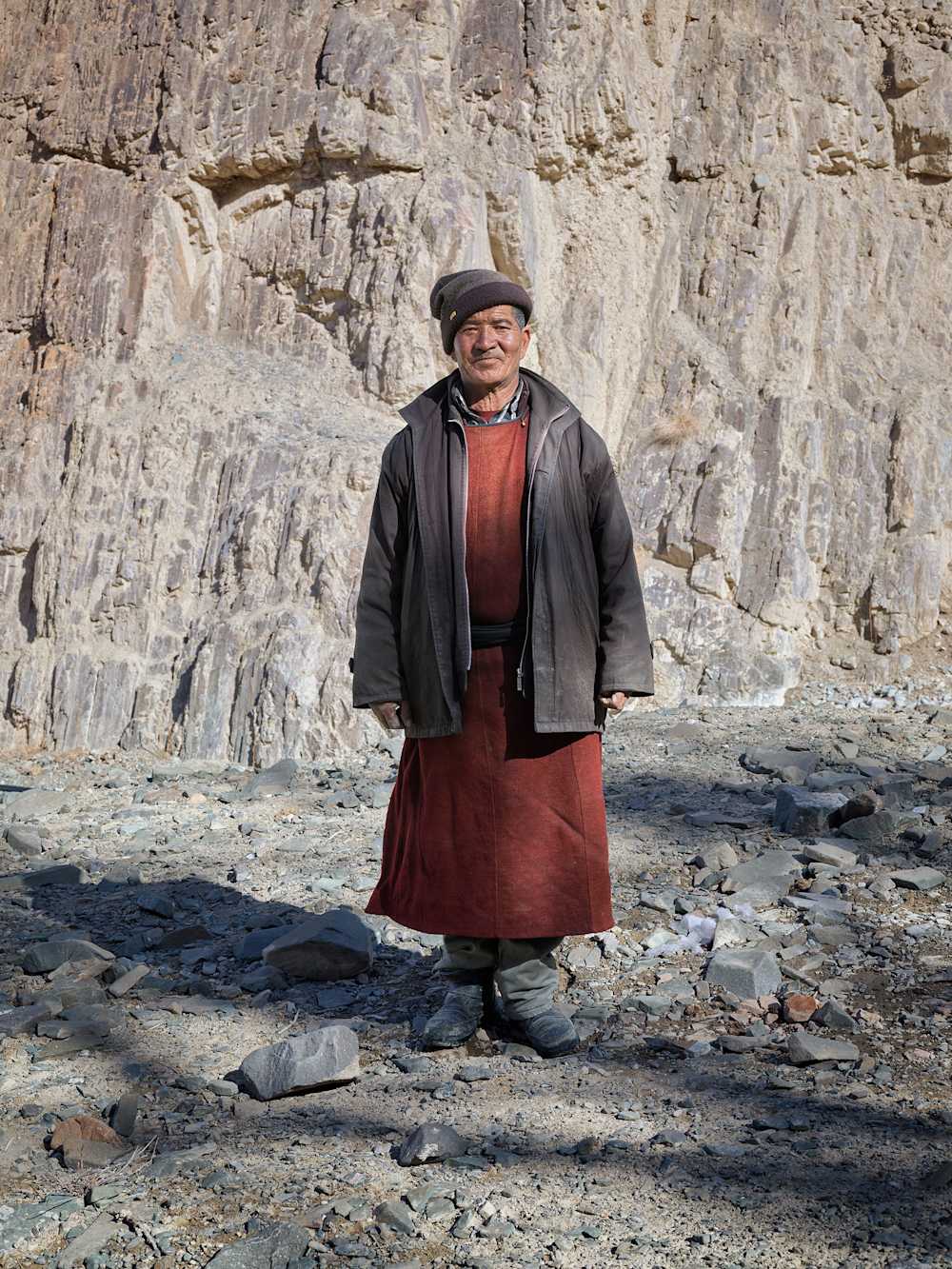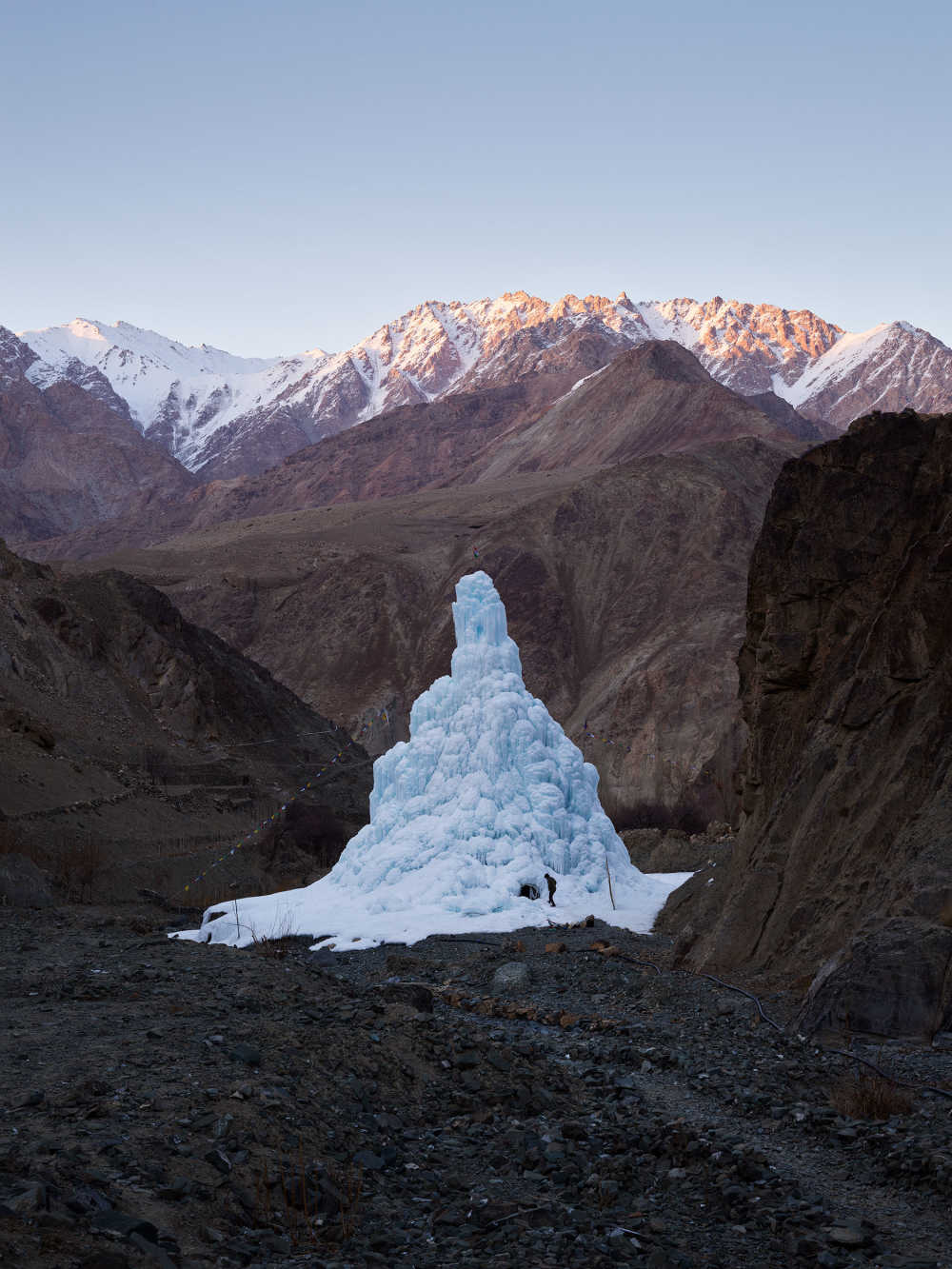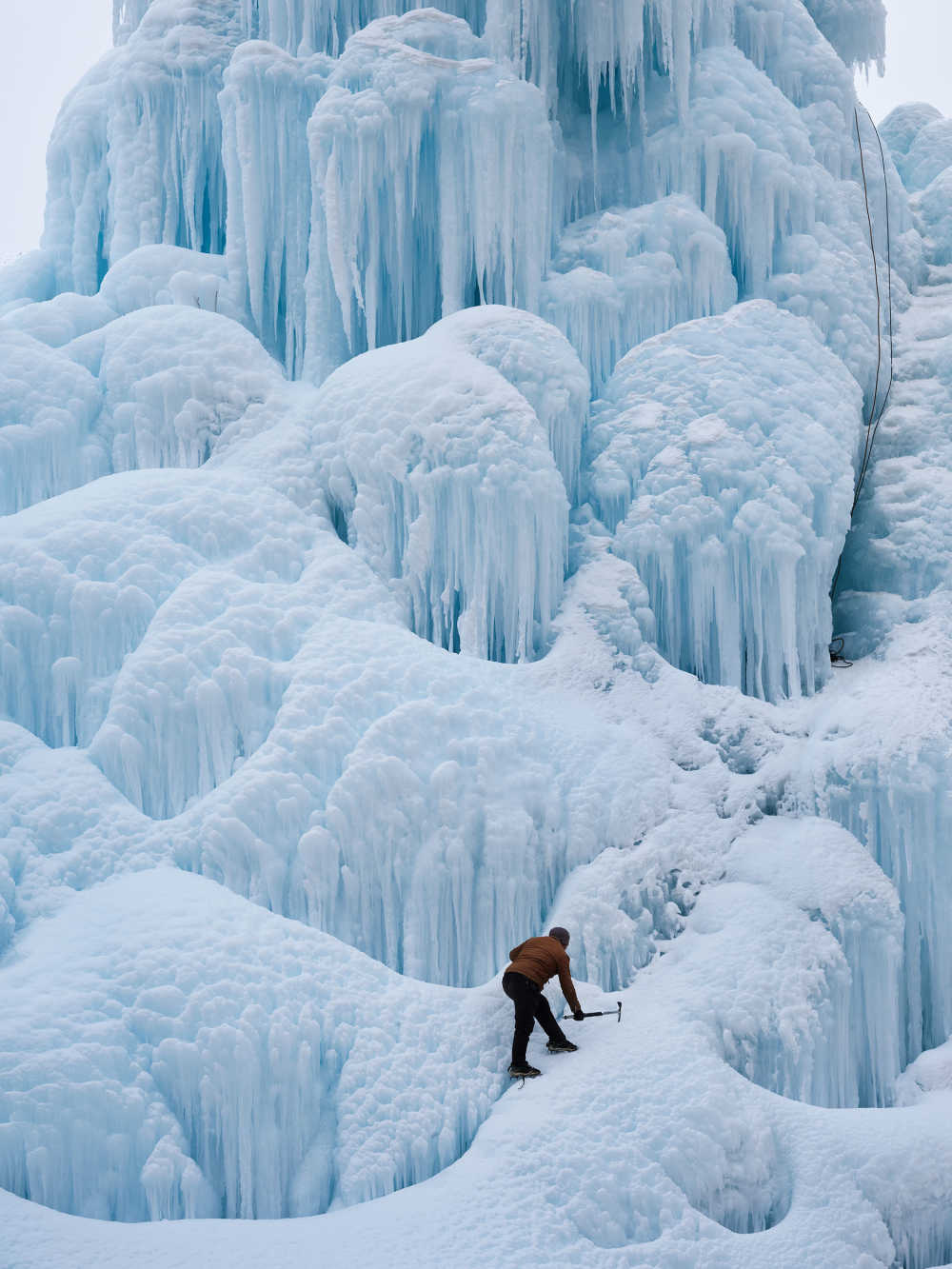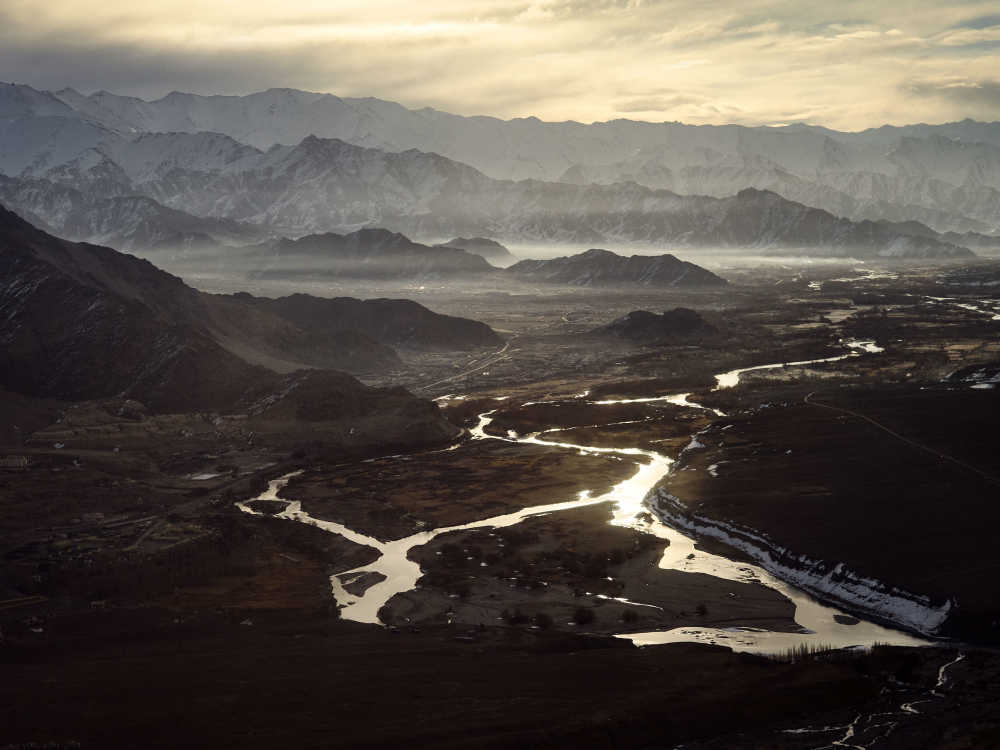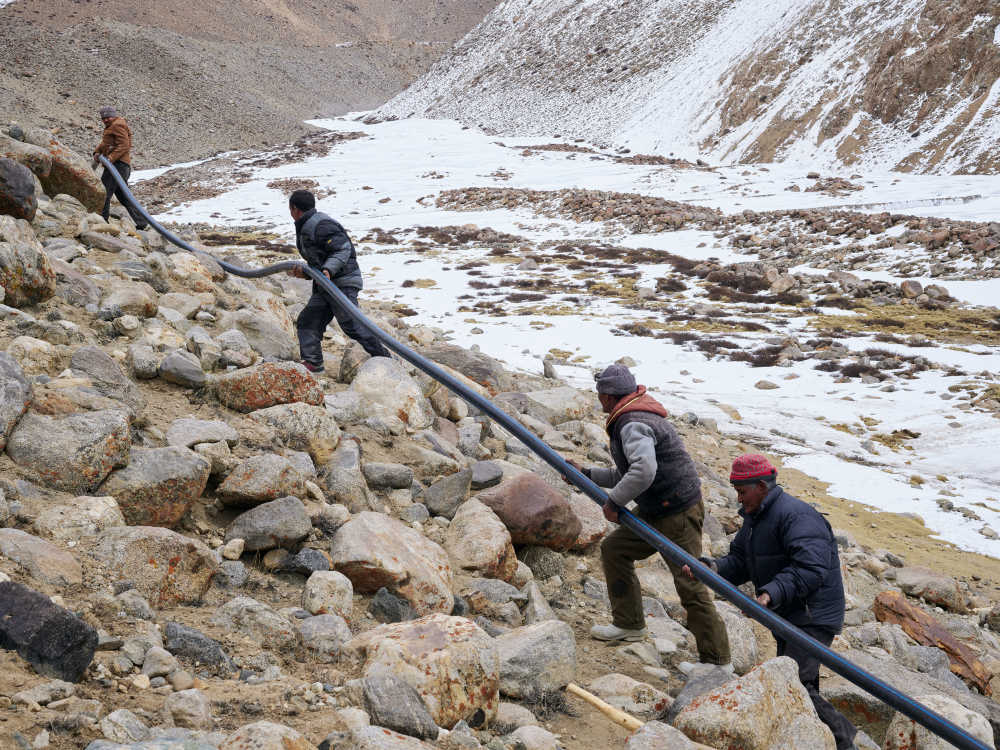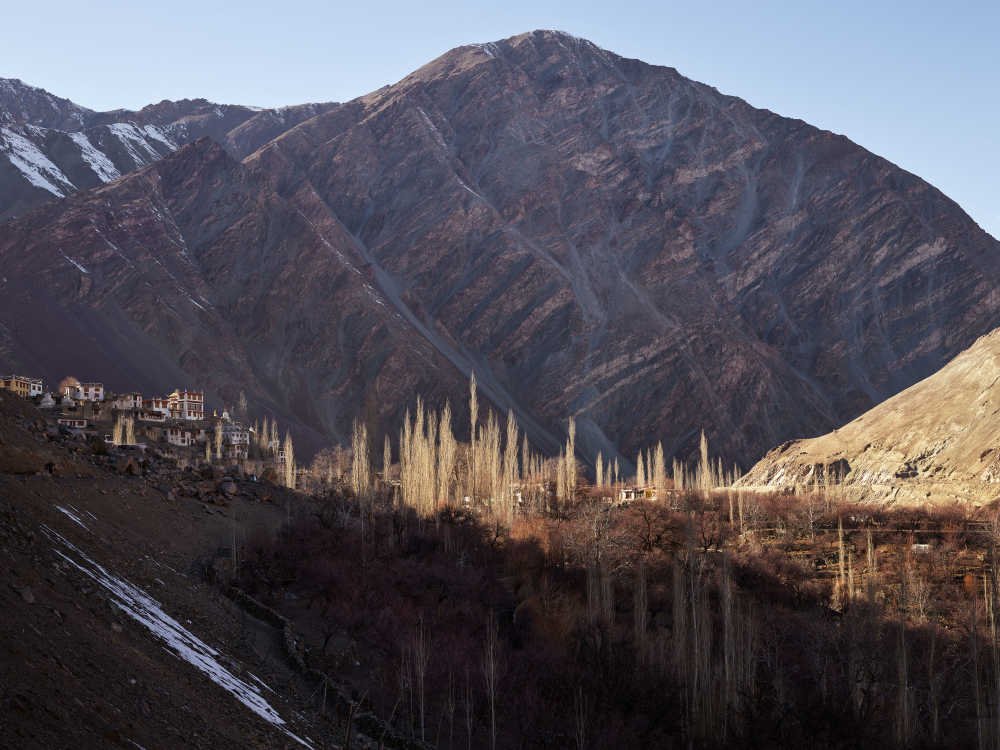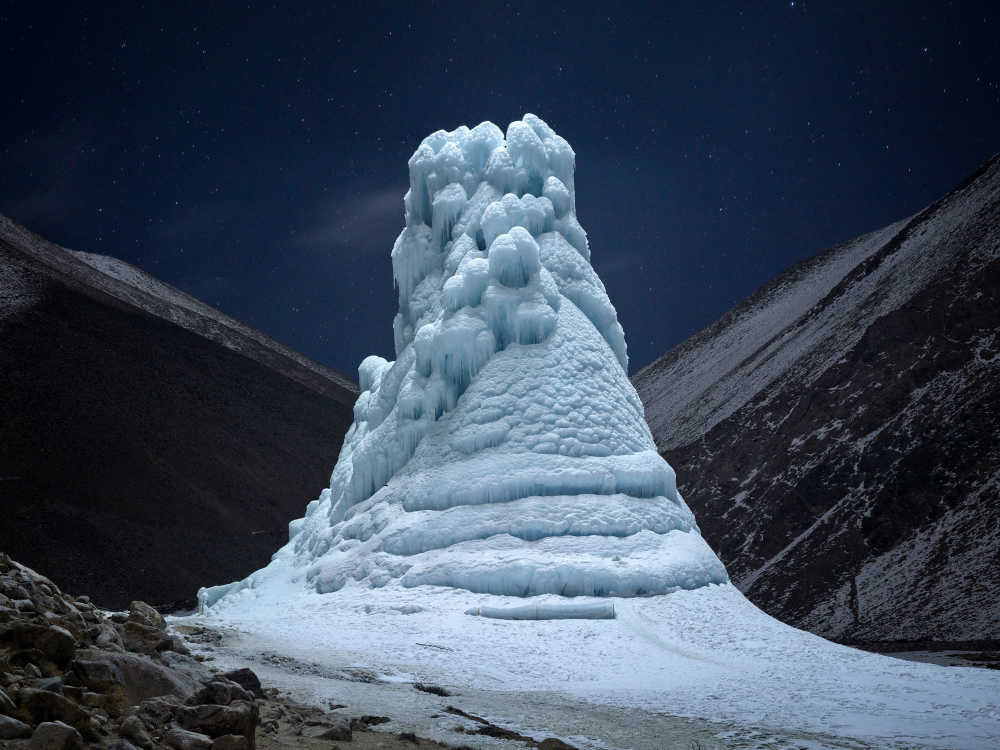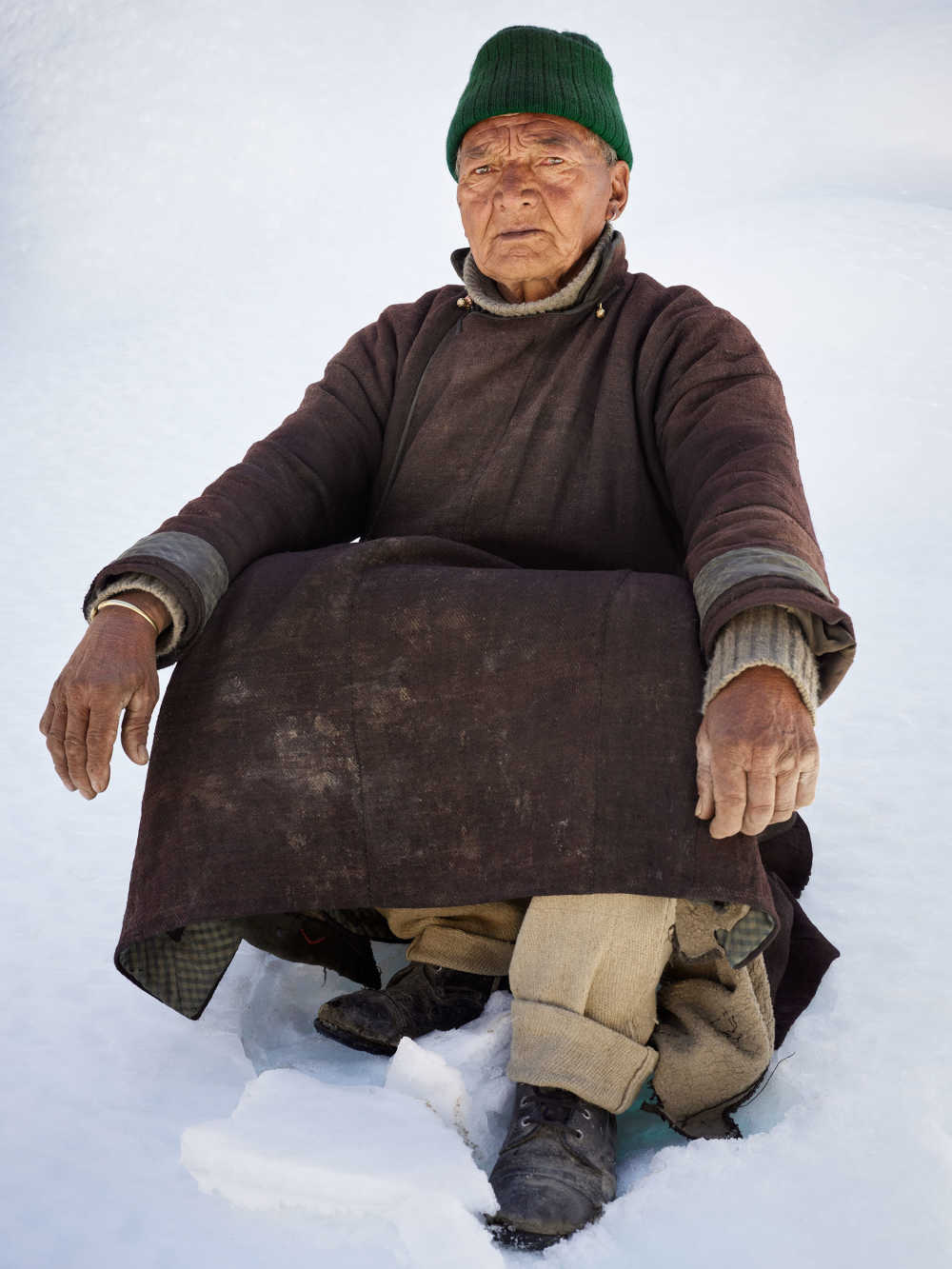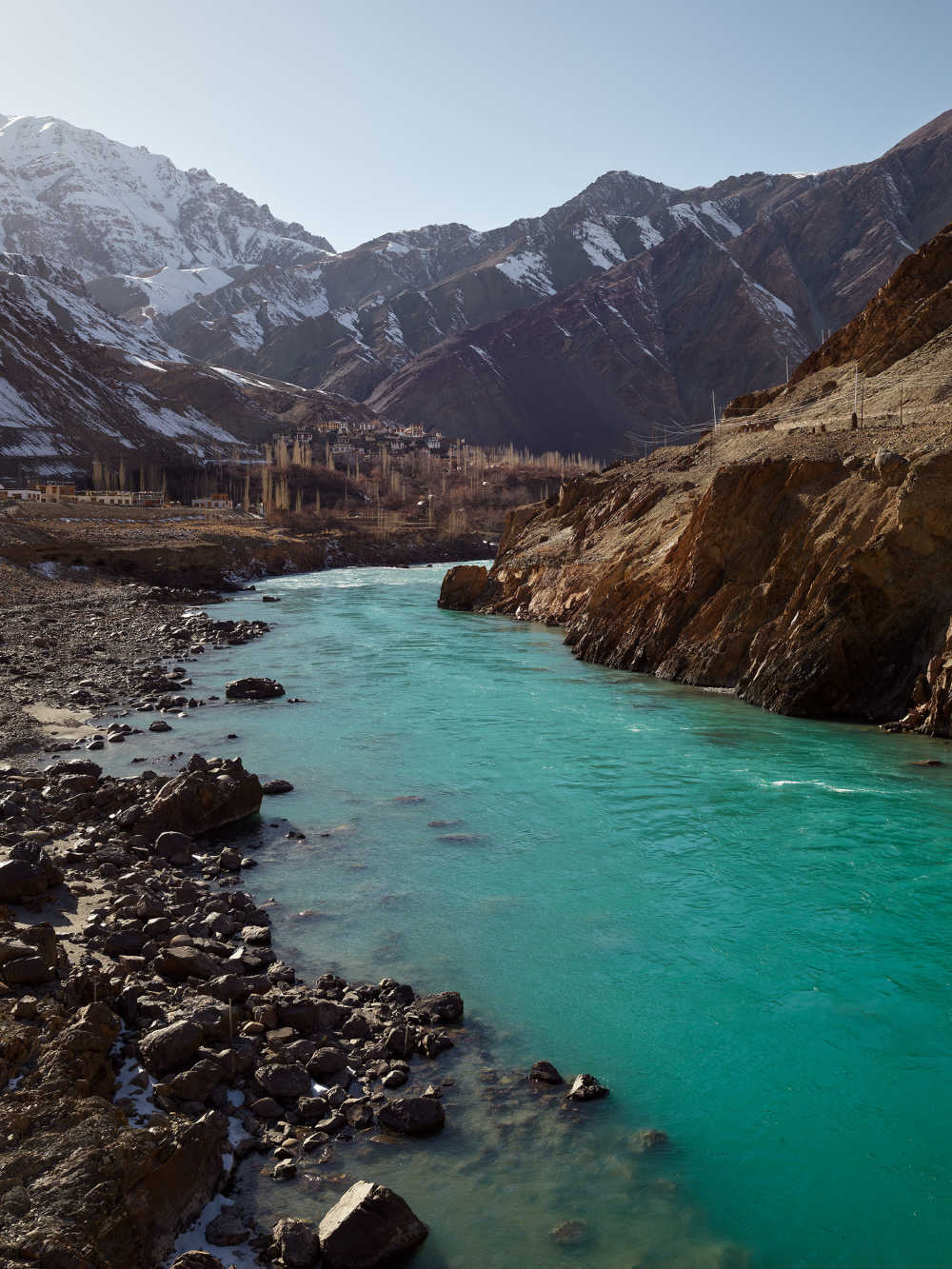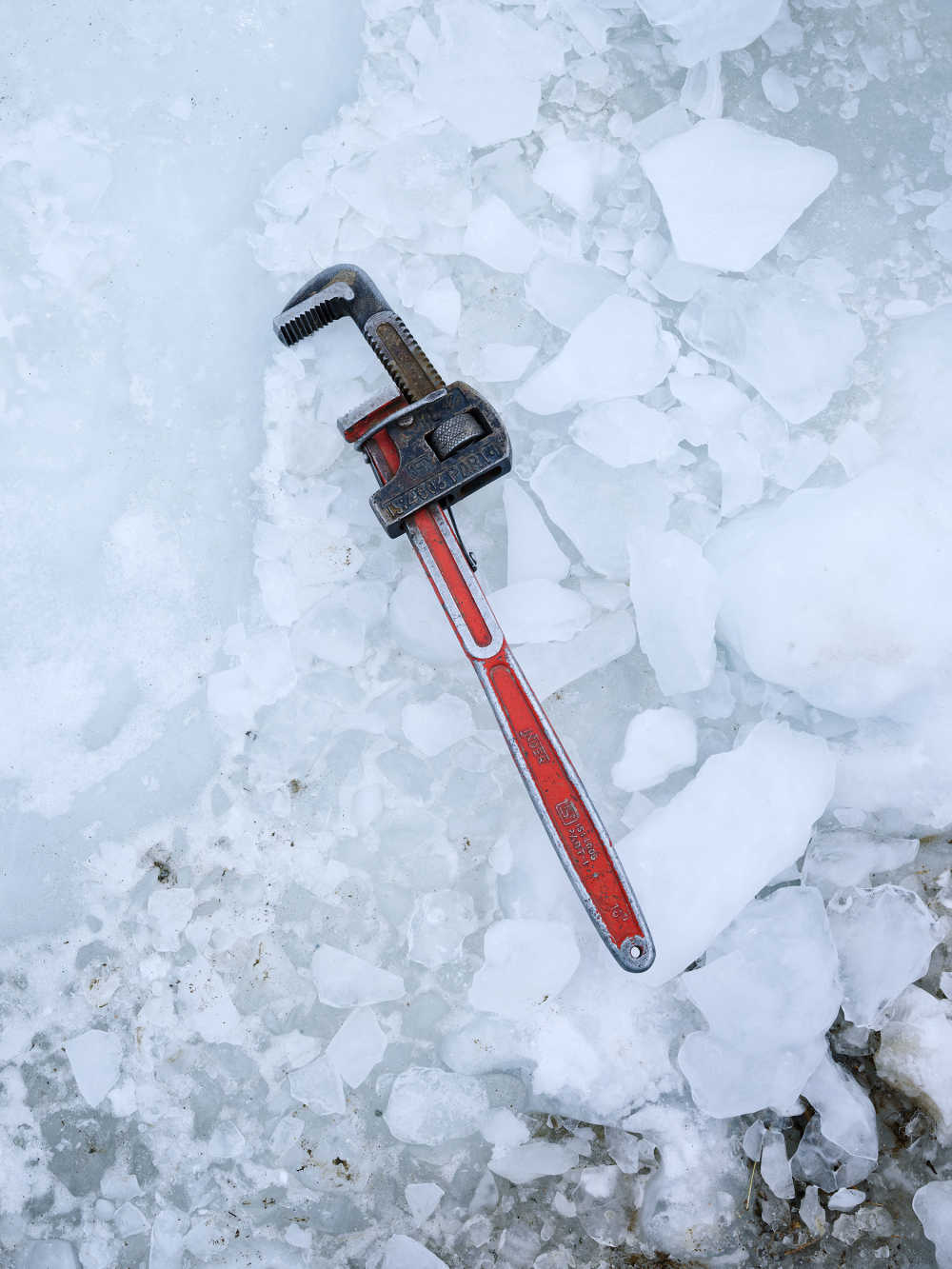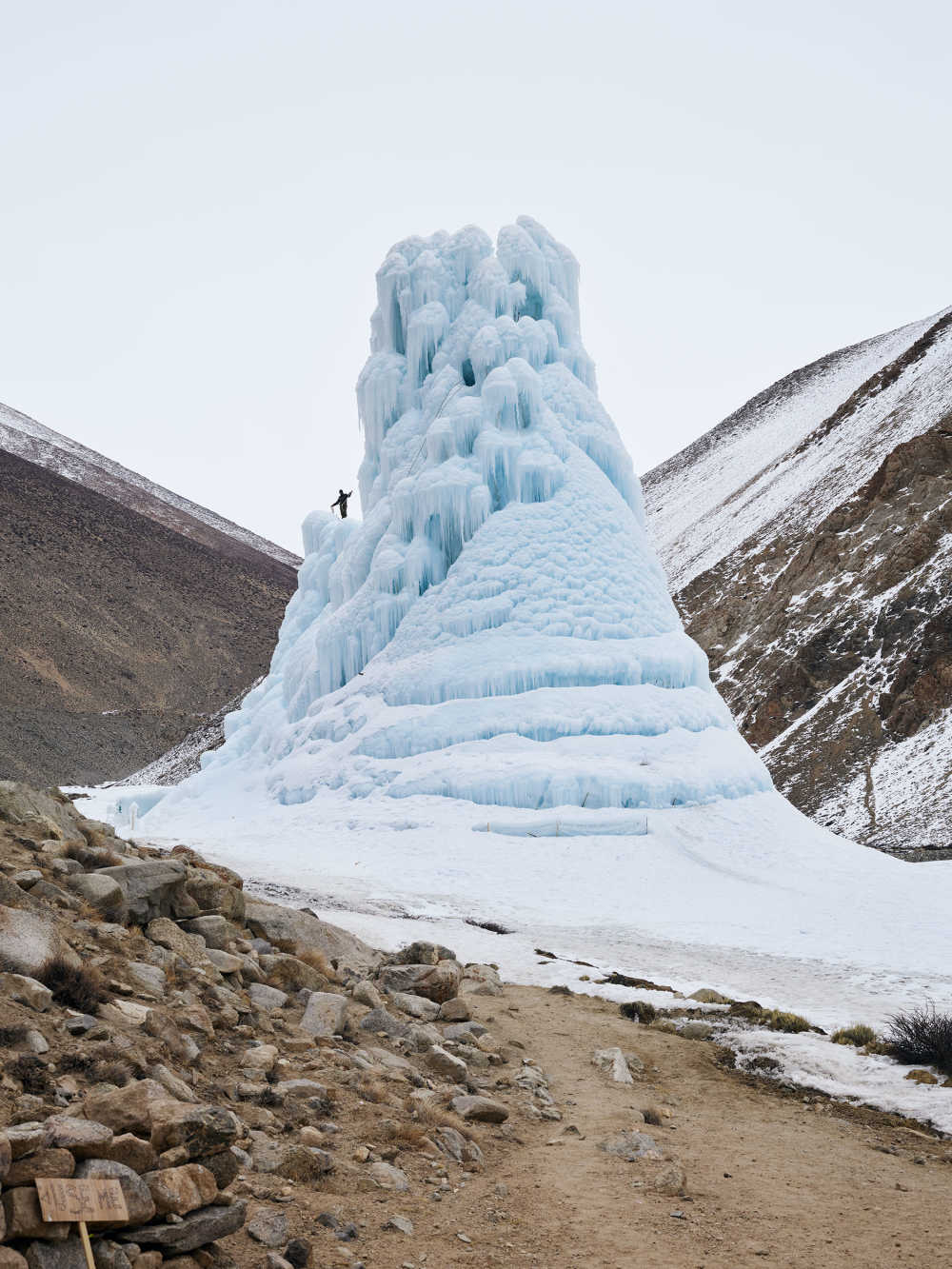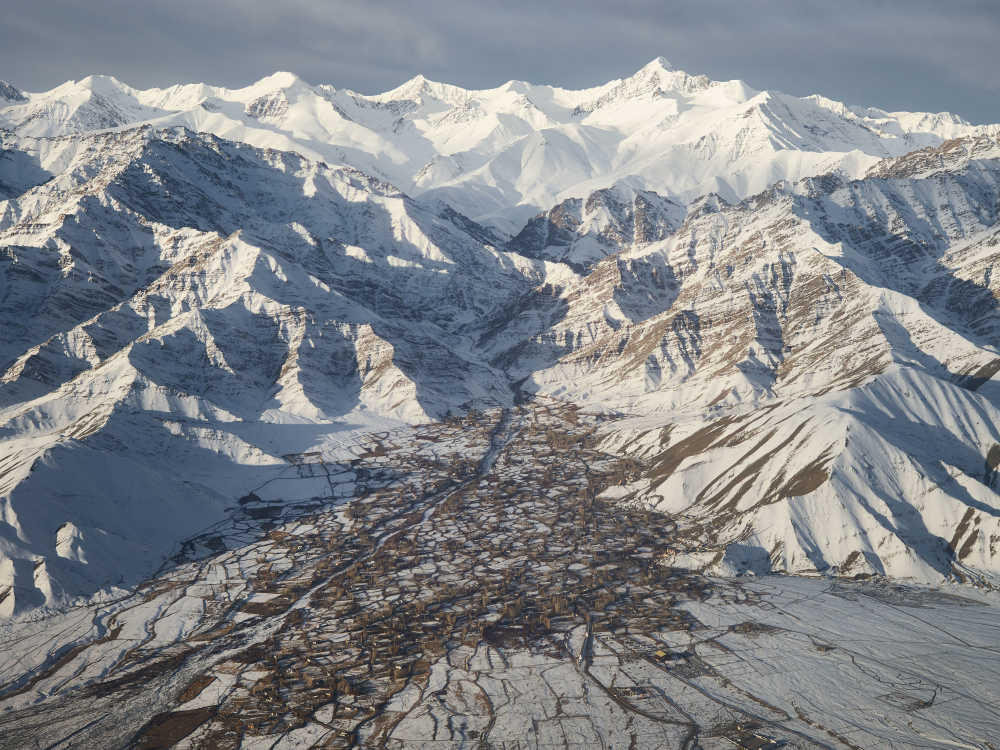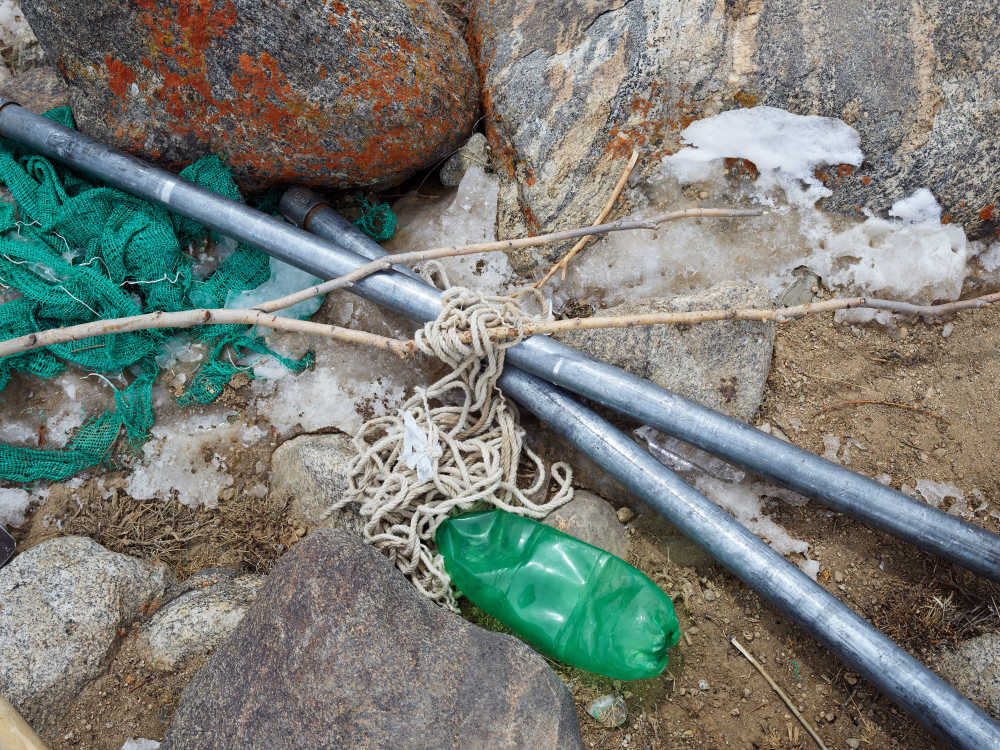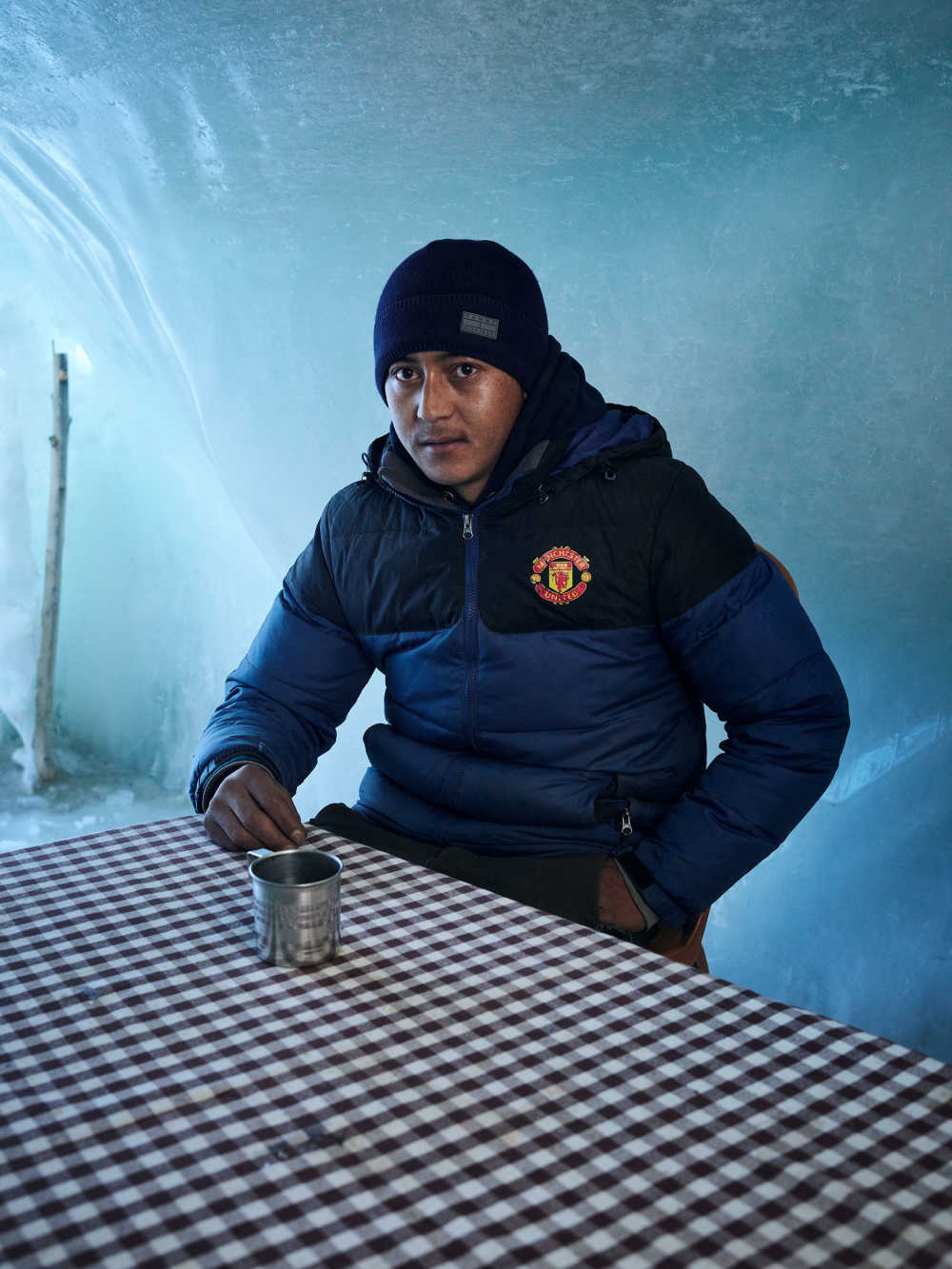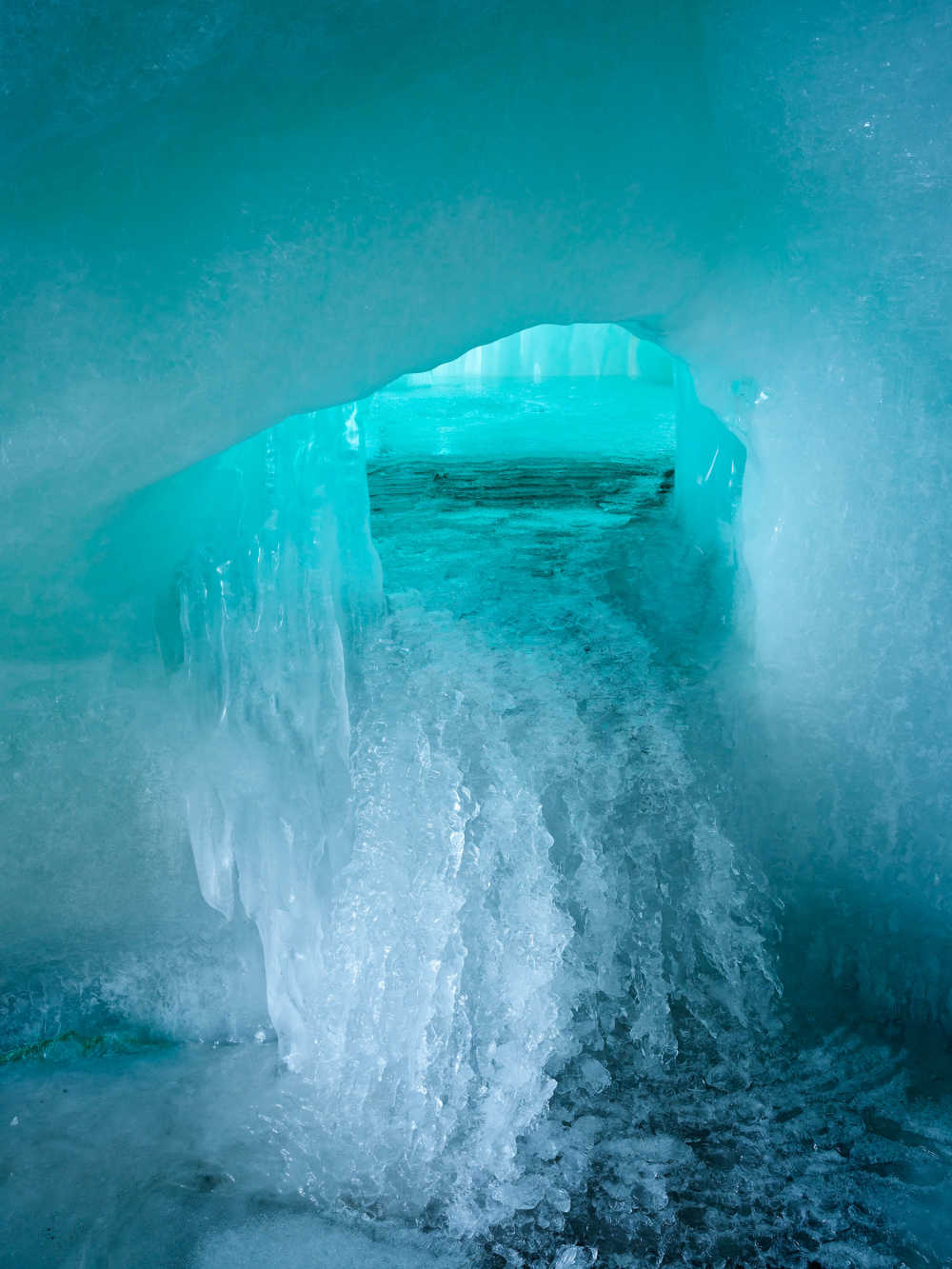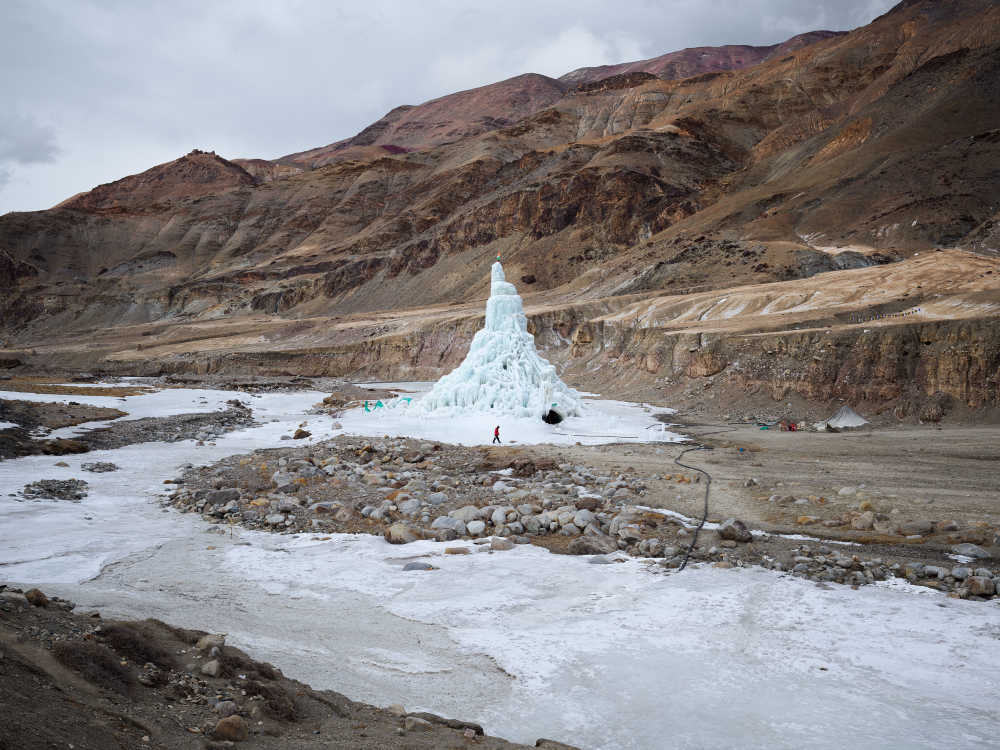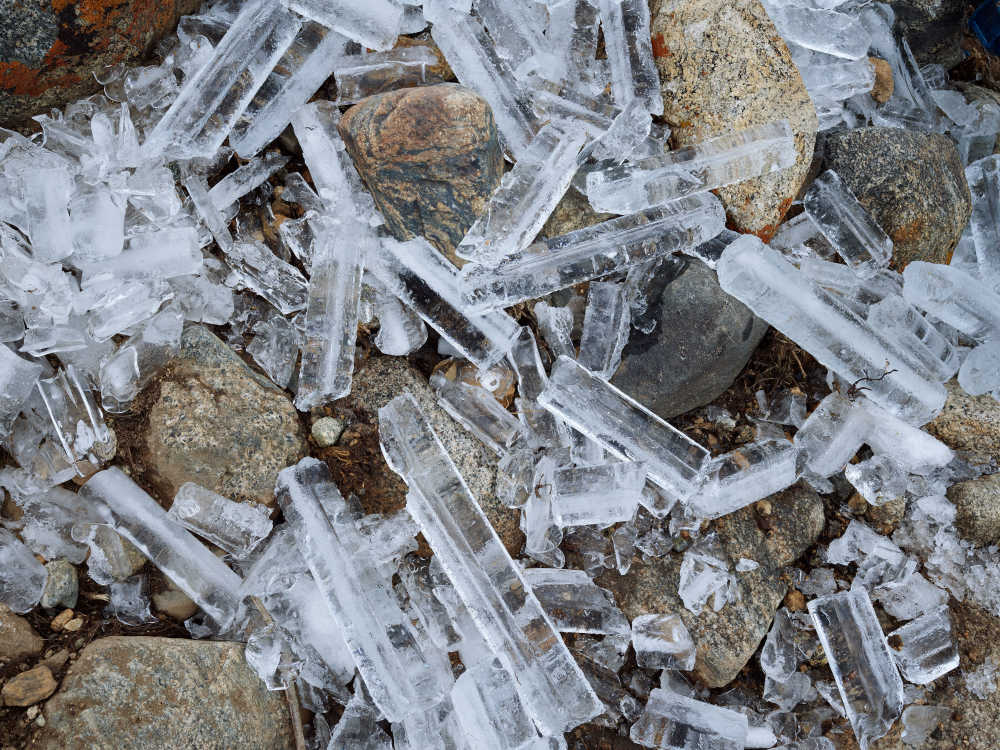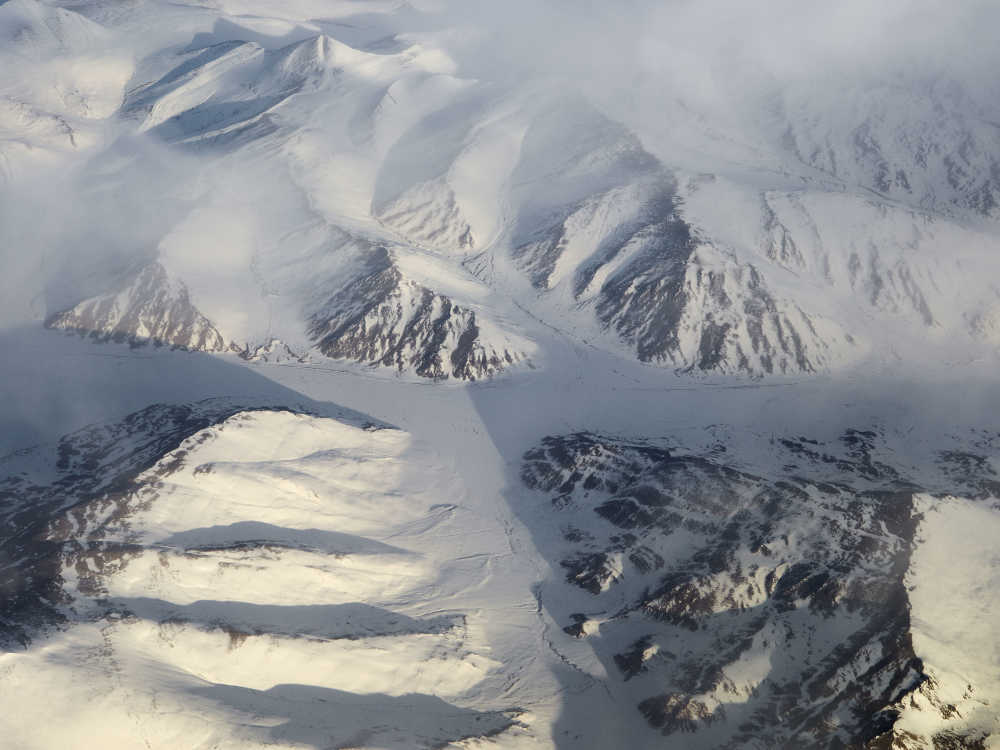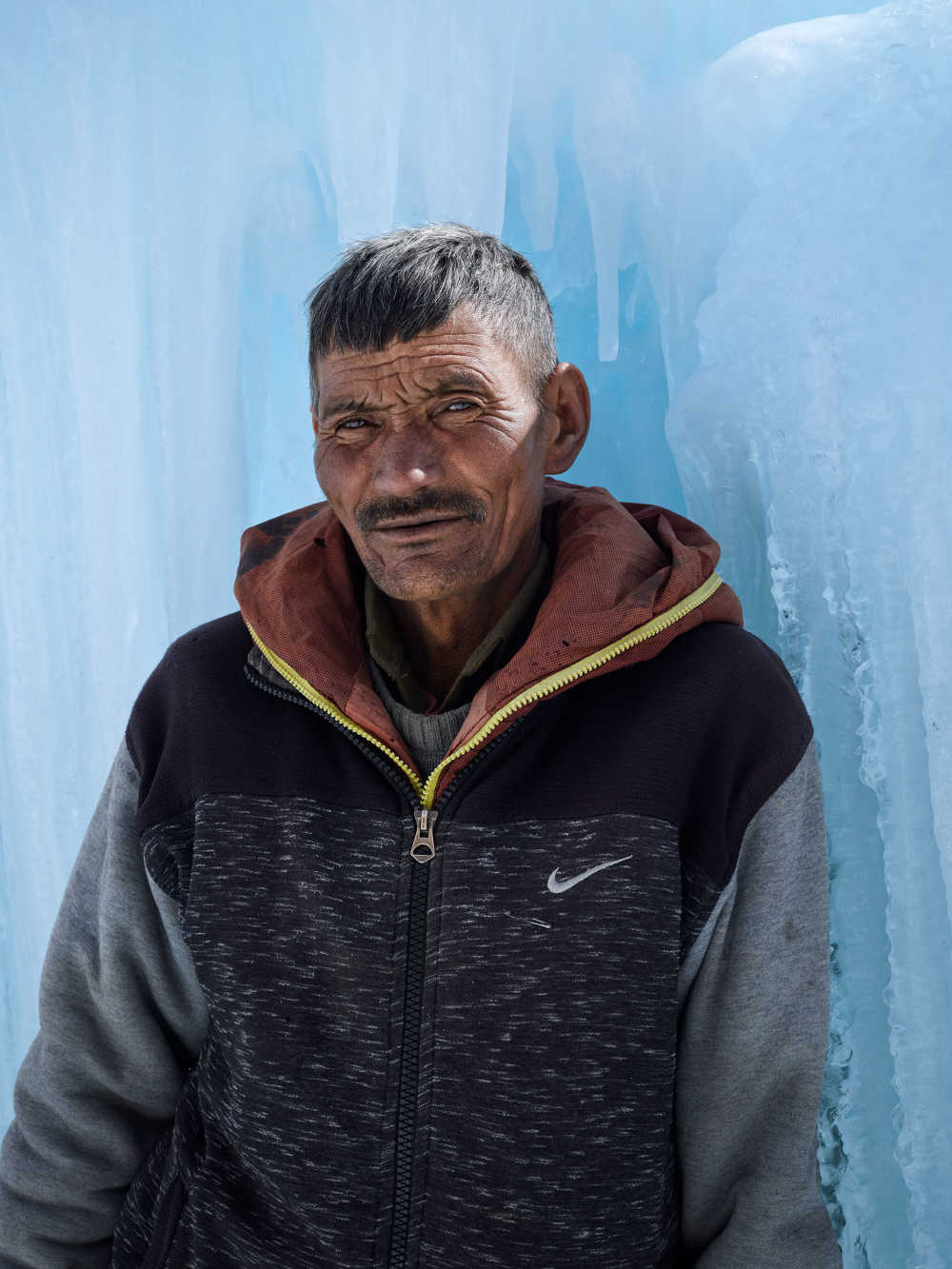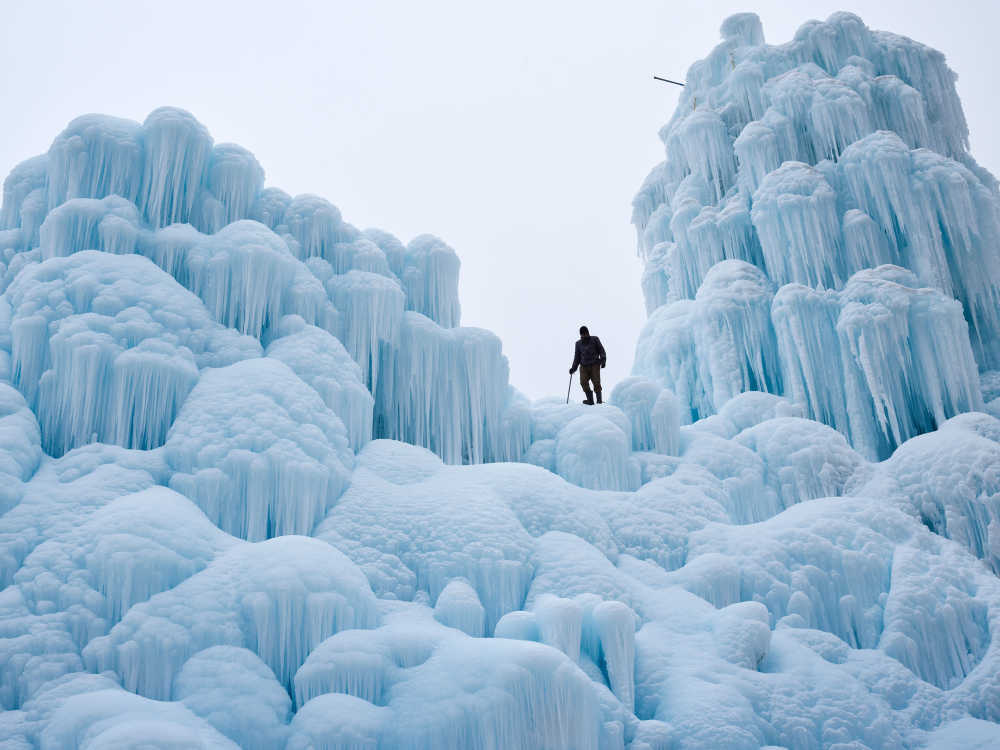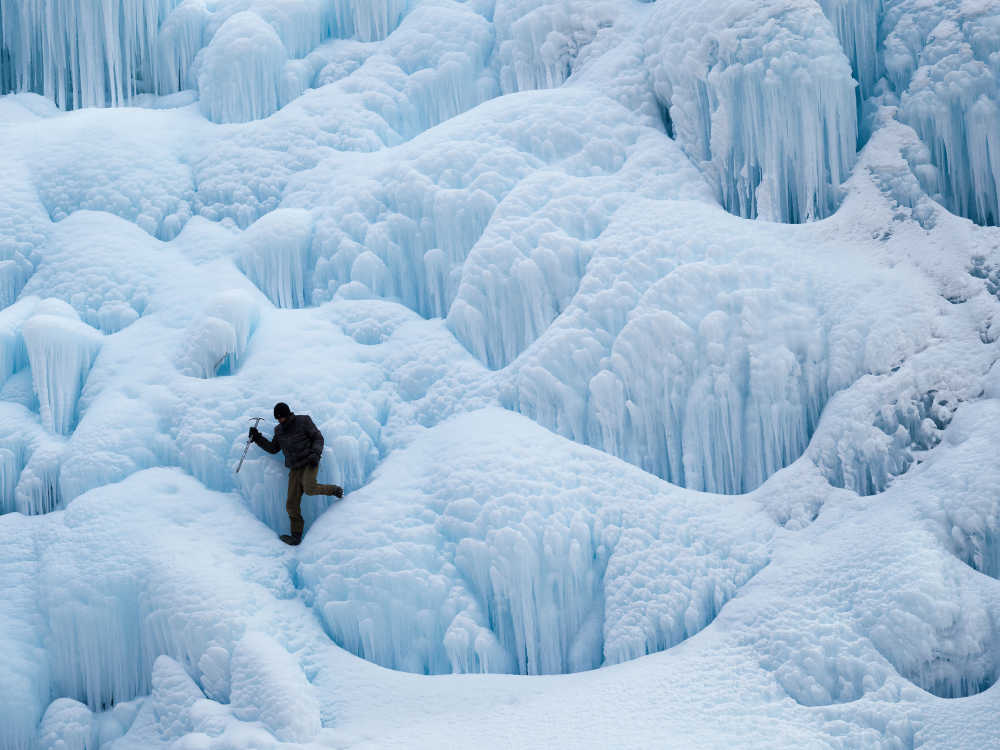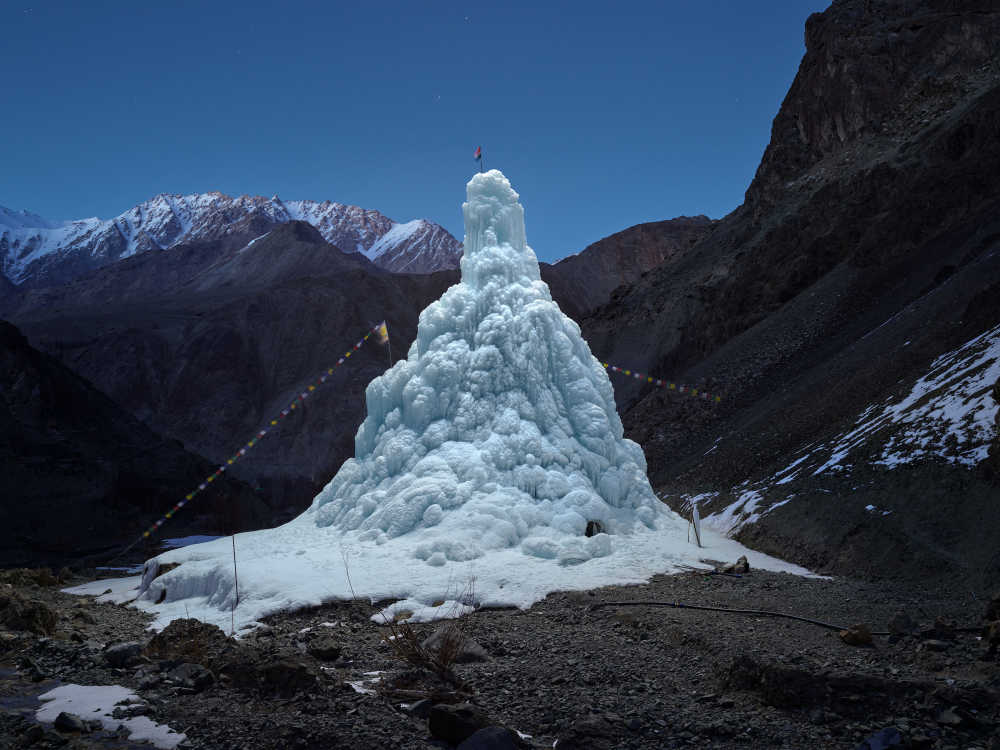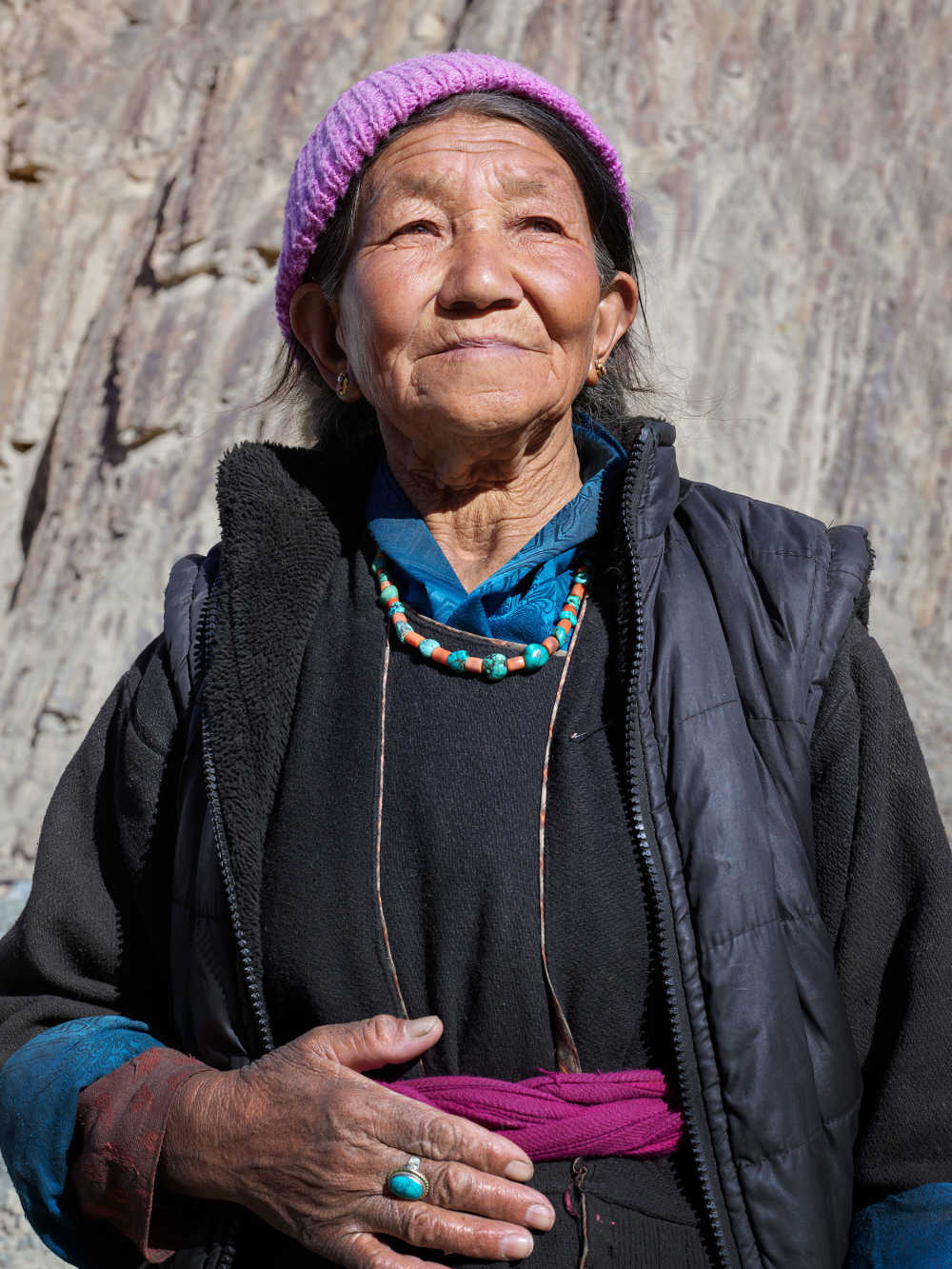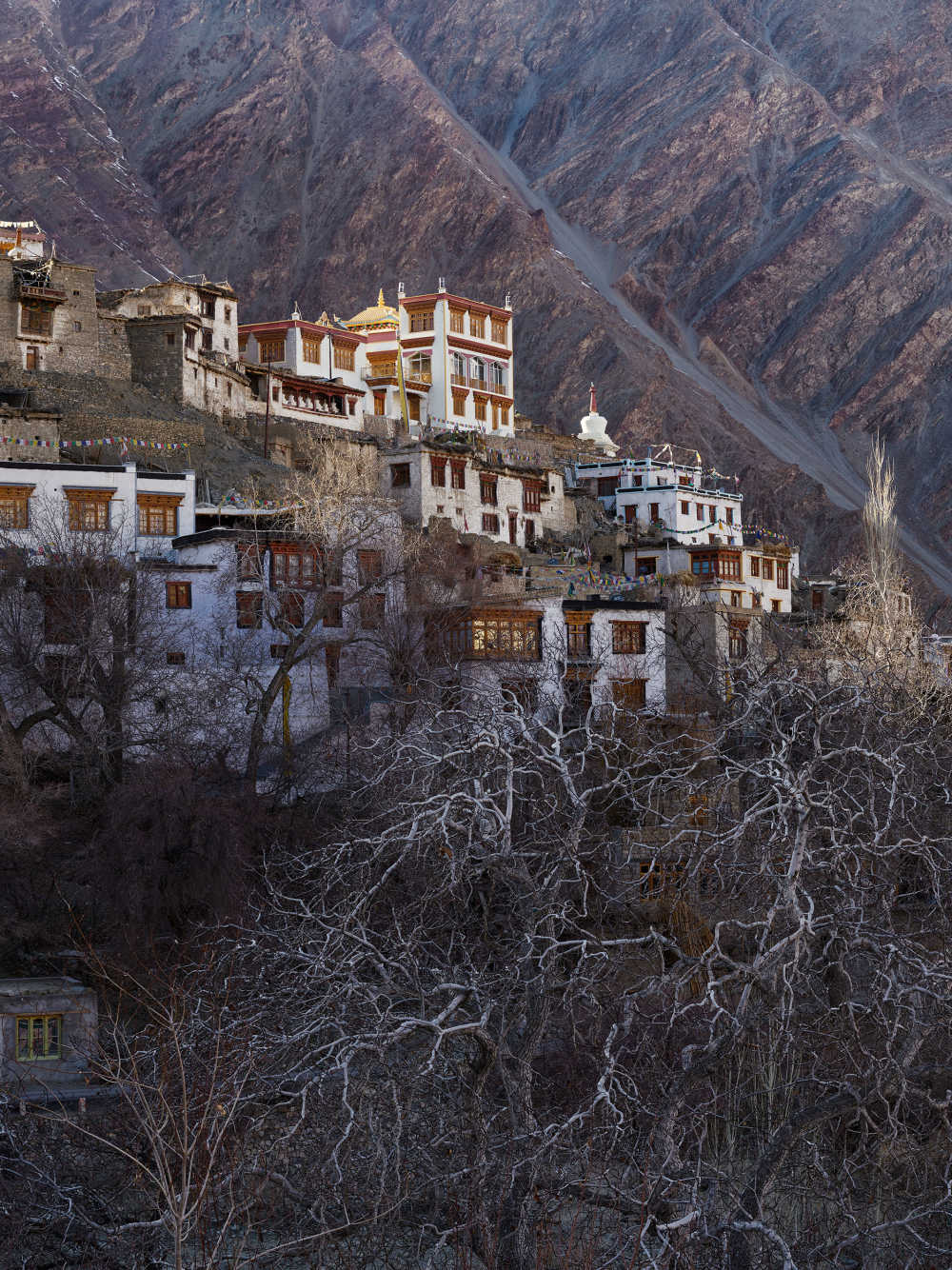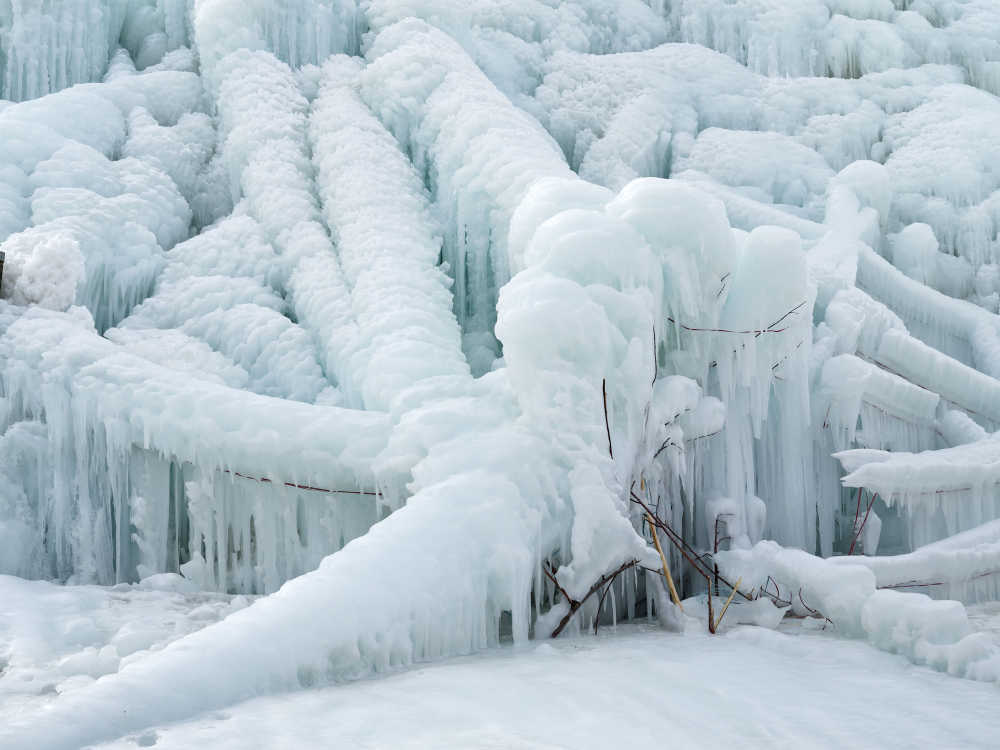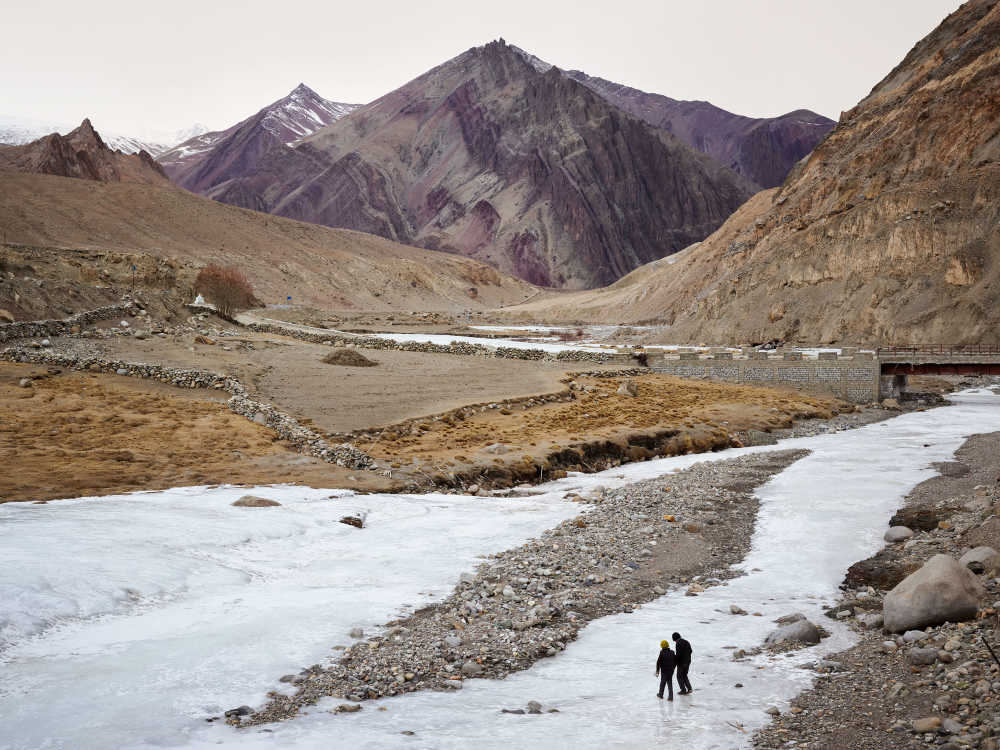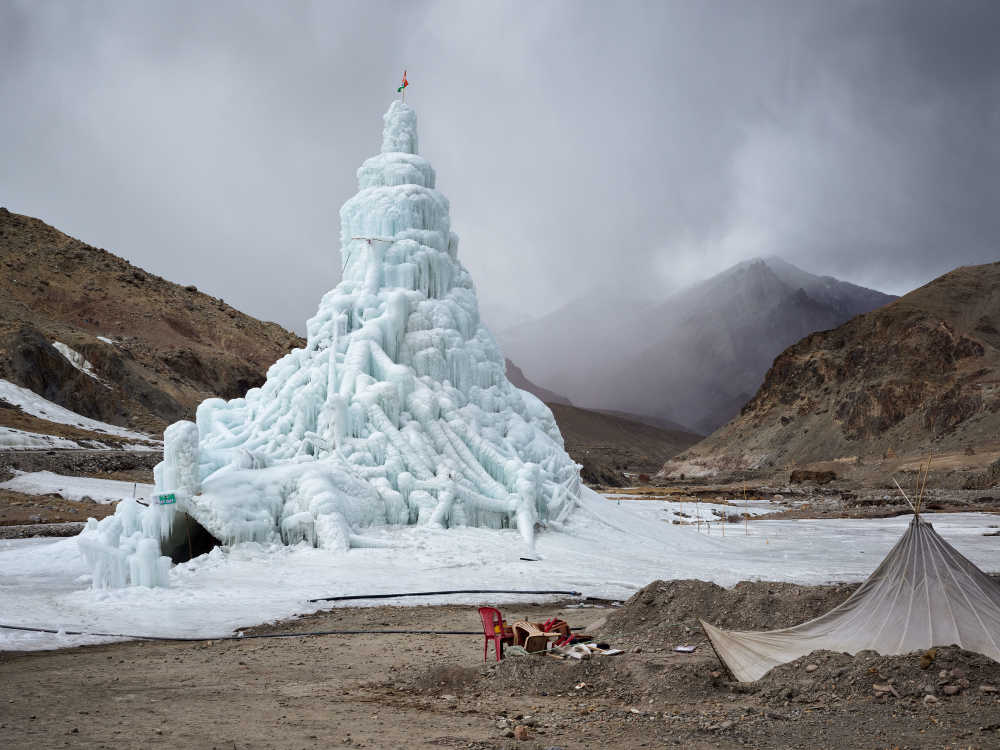(1 of 23)
Stupa
As soon as I learned about the ice stupas of Ladakh, I knew I wanted to photograph them. For a start, they look really cool. But they are also an engineering marvel, a demonstration of human ingenuity harnessing an area's natural resources to solve an age-old problem that has become even more desperate since the climate change crisis. In 2019, I travelled to India to document the region's clever new approach to water conservation and to meet the people who work with these man-made glaciers.
The climate of Ladakh, a cold desert to the north of India, serves up a few threats for the people that live there: a drought in the spring when water is most needed to irrigate the local crops, and flash floods in the summer. The ice stupas are a breakthrough solution, created by piping water from local streams in the winter to create tall mountains of ice. The ice is directed into its distinct cone shape so that an optimal amount of stream water is frozen without exposing a large surface area to the sun. This means that the ice will melt at a slower pace in the spring - just in time to provide water for farms nearby.
